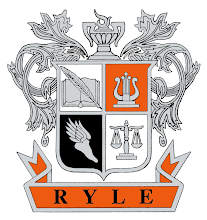Jan. 15, 1929 to April 4, 1968
“Like anybody, I would like to live a long life. Longevity has its place. But I'm not concerned about that now. I just want to do God's will. And He's allowed me to go up to the mountain. And I've looked over. And I've seen the Promised Land. I may not get there with you. But I want you to know tonight, that we, as a people, will get to the promised land!”
With these words, Dr. Martin Luther King Jr. built a crescendo to his final speech on April 3, 1968. The next day, the civil rights leader was shot and killed on a balcony of the Lorraine Motel in Memphis, Tenn.
At the roots Dr. King’s civil rights convictions was an even more profound faith in the basic goodness of man and the great potential of American democracy. These beliefs gave to his speeches a fervor that could not be stilled by criticism.
He rose in 1955 from a newly arrived minister in Montgomery, Ala. to a figure of national prominence. It was Dr. King who dramatized the Montgomery bus boycott with his decision to make it the testing ground, before the eyes of the nation, of his belief in the civil disobedience teachings of Thoreau and Gandhi.
In the summer of 1963, Dr. King led the March on Washington, stirring the emotions of millions with the words “I have a dream.” On Dec. 10, 1964, he won the Nobel Peace Prize.
His strong beliefs in civil rights and non-violence made him one of the leading opponents to American participation in the war in Vietnam.
At the time he was assassinated in Memphis, Dr. King was involved in one of his greatest plans to dramatize the plight of the poor and stir Congress to help blacks. He called his venture the “Poor People’s Campaign.”
-- Adapted from the New York Times' obituary. April 5, 1968.
Columbia Is Investigated for Handling of Sex-Abuse Claims Against Doctor
-
Attorney General Letitia James is investigating the university for its
actions after the 2012 arrest of Robert Hadden, a former Columbia
gynecologist convi...
11 hours ago
















No comments:
Post a Comment